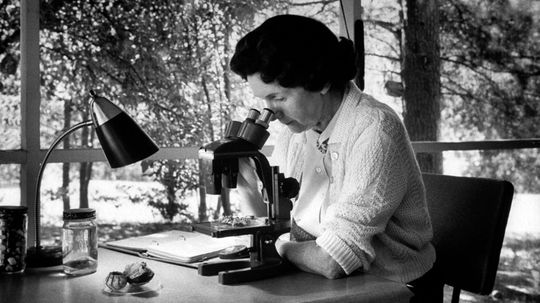American Biologists
American biologists have contributed some of biology's greatest findings. With the increasing importance of genetics, conservation and microbiology, American biologists may yet discover some of nature's most amazing secrets.
Learn More
Berg, Paul (1926-), an American biochemist and molecular biologist, has been at the forefront of genetic engineering, both as an inventor of a pioneering procedure and as an advocate concerned about the risks of genetic research.
The late marine biologist Rachel Carson's groundbreaking book, "Silent Spring," debuted 60 years ago as one of the finest works of nature writing ever.
By Oisin Curran

